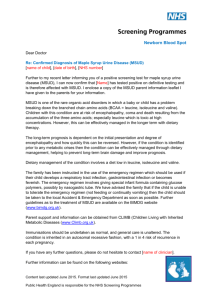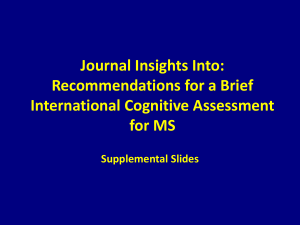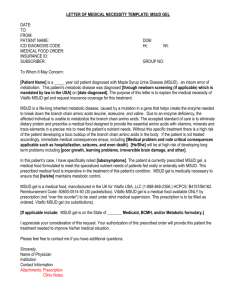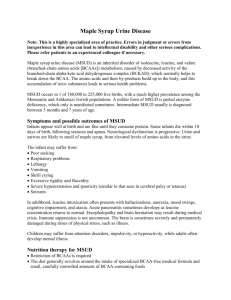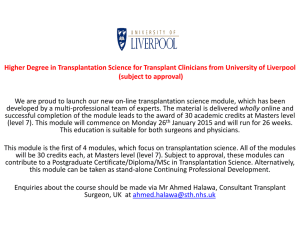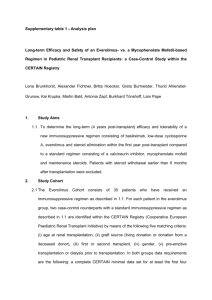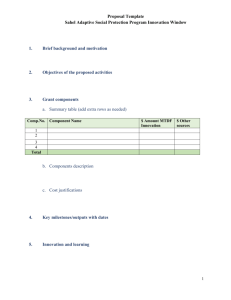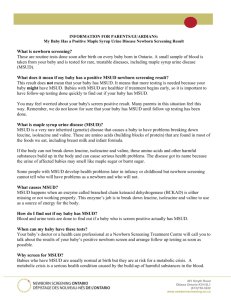File
advertisement
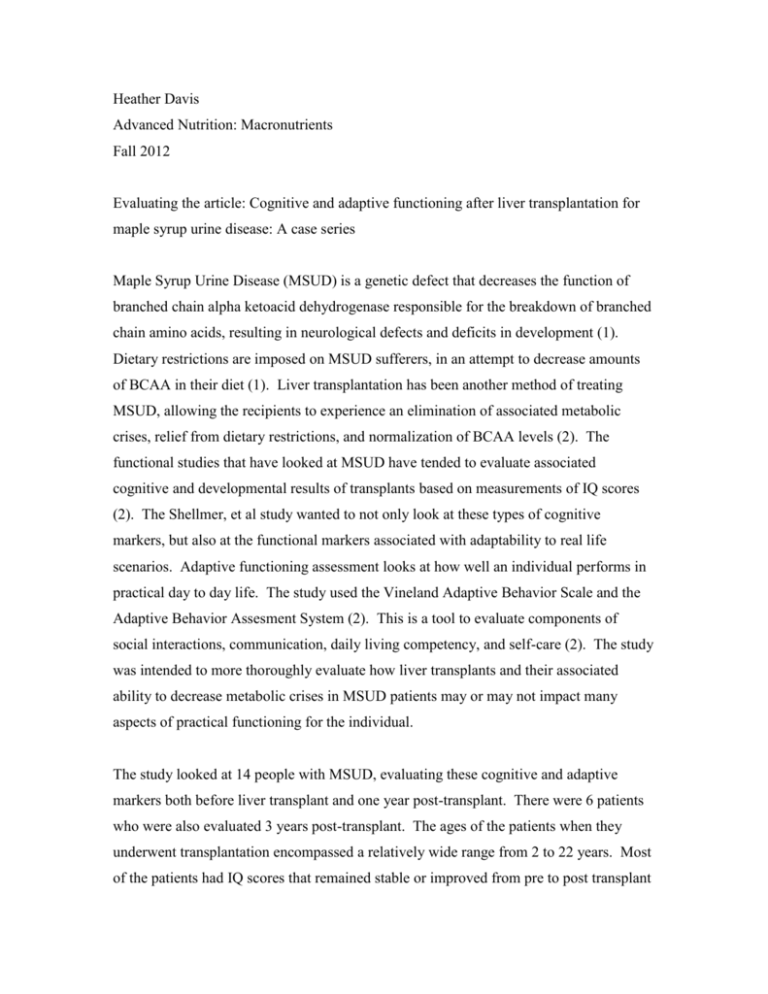
Heather Davis Advanced Nutrition: Macronutrients Fall 2012 Evaluating the article: Cognitive and adaptive functioning after liver transplantation for maple syrup urine disease: A case series Maple Syrup Urine Disease (MSUD) is a genetic defect that decreases the function of branched chain alpha ketoacid dehydrogenase responsible for the breakdown of branched chain amino acids, resulting in neurological defects and deficits in development (1). Dietary restrictions are imposed on MSUD sufferers, in an attempt to decrease amounts of BCAA in their diet (1). Liver transplantation has been another method of treating MSUD, allowing the recipients to experience an elimination of associated metabolic crises, relief from dietary restrictions, and normalization of BCAA levels (2). The functional studies that have looked at MSUD have tended to evaluate associated cognitive and developmental results of transplants based on measurements of IQ scores (2). The Shellmer, et al study wanted to not only look at these types of cognitive markers, but also at the functional markers associated with adaptability to real life scenarios. Adaptive functioning assessment looks at how well an individual performs in practical day to day life. The study used the Vineland Adaptive Behavior Scale and the Adaptive Behavior Assesment System (2). This is a tool to evaluate components of social interactions, communication, daily living competency, and self-care (2). The study was intended to more thoroughly evaluate how liver transplants and their associated ability to decrease metabolic crises in MSUD patients may or may not impact many aspects of practical functioning for the individual. The study looked at 14 people with MSUD, evaluating these cognitive and adaptive markers both before liver transplant and one year post-transplant. There were 6 patients who were also evaluated 3 years post-transplant. The ages of the patients when they underwent transplantation encompassed a relatively wide range from 2 to 22 years. Most of the patients had IQ scores that remained stable or improved from pre to post transplant (2). Adaptive functioning results varied more from pre to post transplant and there appeared to be no significant change here (2). Of interesting note is that for the 6 patients who were evaluated at 3 years post-transplant, the majority remained stable or improved in the area of adaptive functioning (2). This inevitably leads one to wonder if the best assessment of adaptive function results would include a longer period of follow-up, as with these 6 patients. The majority of patients in the study were children under age 10 and were in more developmentally formative stages of life in terms of cognitive function. However, it is relevant to note that there were older patients (between 10 and 22 years of age) and that this wide range of ages partially contributed the variability in results. The researchers note that it may be preferable in terms of cognitive outcomes, for patients to undergo liver transplantation earlier rather than later in life (2). Again, time may play a factor both regarding the age at which transplantation occurs as well as how long posttransplant follow ups take place. The sample size for the study was relatively small and contributed to a difficulty in determining a strong result (2). In the future, it may be helpful to compare long-term functional/cognitive changes in MSUD non-transplant patients versus MSUD transplant patients to further assess the potential benefits of transplant. Cognitive outcomes, measured by IQ, stabilized improved overall from pre to posttransplant (2). This is an encouraging finding. There was less striking evidence for improvements in adaptive outcomes. However, overall significance cited by patients and their families as to the relief from metabolic crises associated with pre-transplant MSUD is a consideration (2). It remains unclear whether this benefit outweighs the burden of living a life as a transplant patient and its associated complications. The study was very helpful in introducing the importance for assessing a combined picture of cognitive and adaptive functioning in MSUD patients. While more studies are needed with greater numbers of patients and a smaller range of ages, this study does succeed in beginning to pave the way for their eventuality as well as alluding to the potential benefit to be gained for assessing more long-term results post-transplant. References: (1) Gropper SS and Smith JL. Advanced Nutrition and Human Metabolism, 6th Edition. California: Wadsworth, Cengage Learning; 2005,2009, 2013. Pg 229. (2) Shellmer DA, Devito Dabbs A, Dew MA, Noll RB, Feldman H, Strauss KA, Morton DH, Vockley J, Mazariegos GV. Cognitive and adaptive functioning after liver transplantation for maple syrup urine disease: A case series. Pediatric Transplantation 2011: 15:58-64.
